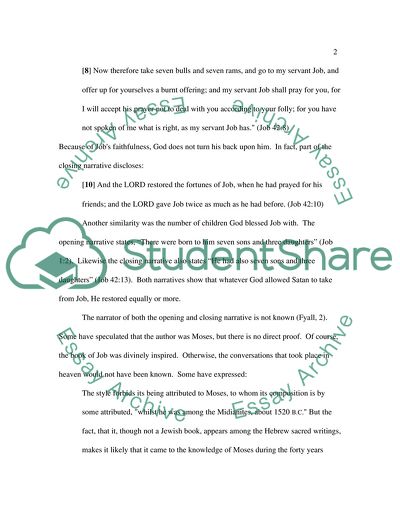Cite this document
(A Book in the Bible Report/Review Example | Topics and Well Written Essays - 3250 words, n.d.)
A Book in the Bible Report/Review Example | Topics and Well Written Essays - 3250 words. https://studentshare.org/religion-and-theology/1710343-exegetical-paper-job-427-17
A Book in the Bible Report/Review Example | Topics and Well Written Essays - 3250 words. https://studentshare.org/religion-and-theology/1710343-exegetical-paper-job-427-17
(A Book in the Bible Report/Review Example | Topics and Well Written Essays - 3250 Words)
A Book in the Bible Report/Review Example | Topics and Well Written Essays - 3250 Words. https://studentshare.org/religion-and-theology/1710343-exegetical-paper-job-427-17.
A Book in the Bible Report/Review Example | Topics and Well Written Essays - 3250 Words. https://studentshare.org/religion-and-theology/1710343-exegetical-paper-job-427-17.
“A Book in the Bible Report/Review Example | Topics and Well Written Essays - 3250 Words”. https://studentshare.org/religion-and-theology/1710343-exegetical-paper-job-427-17.


